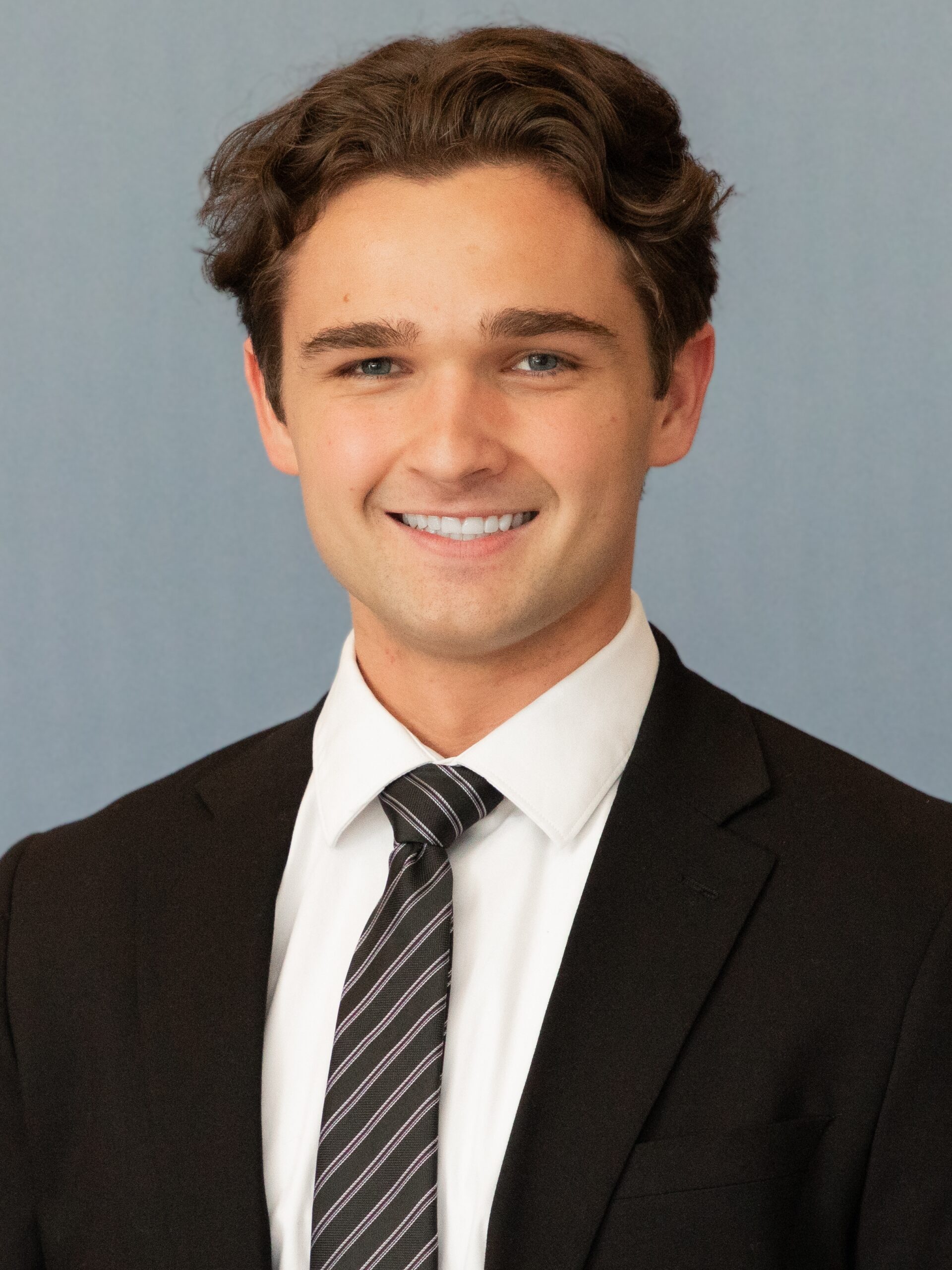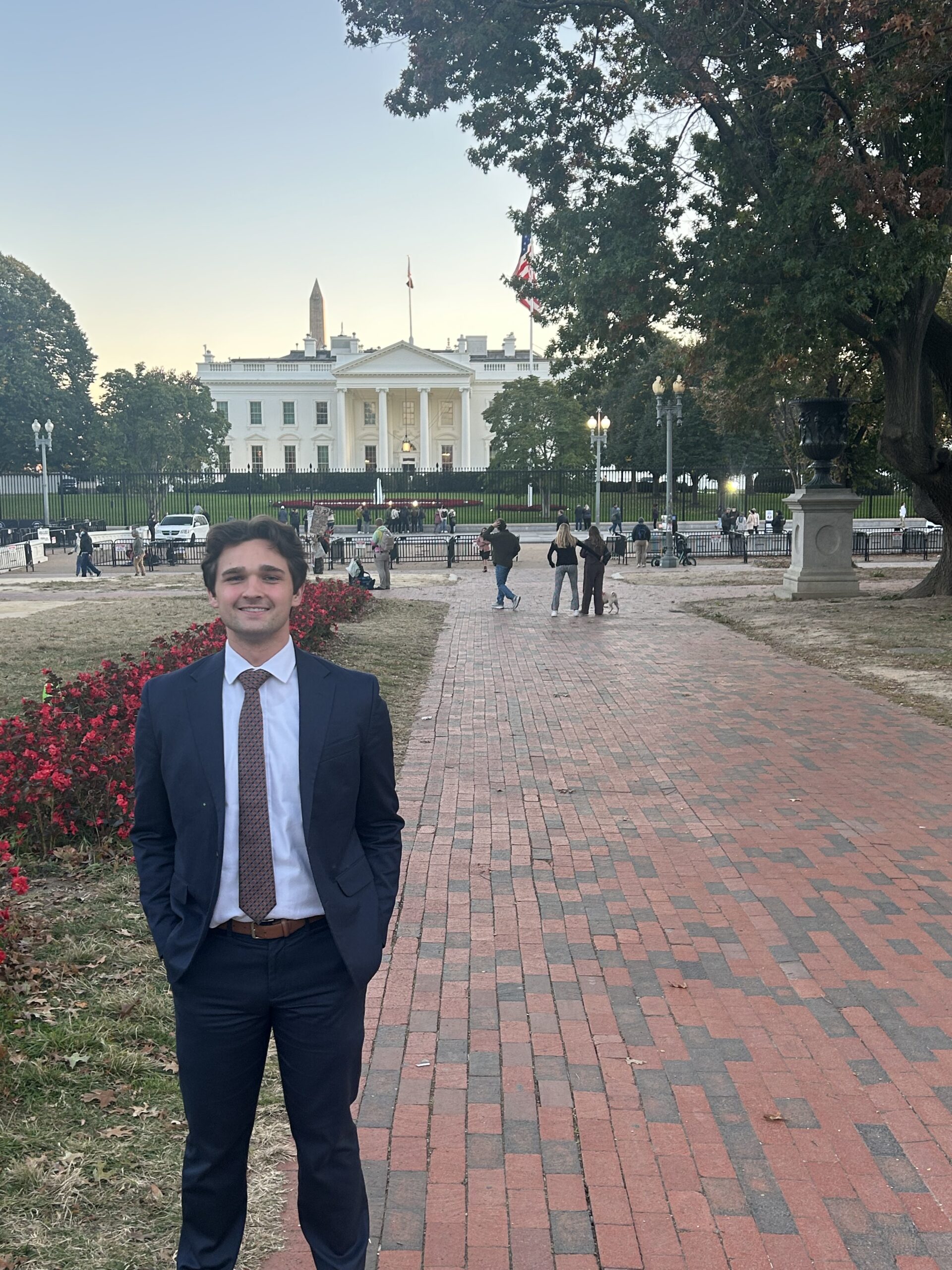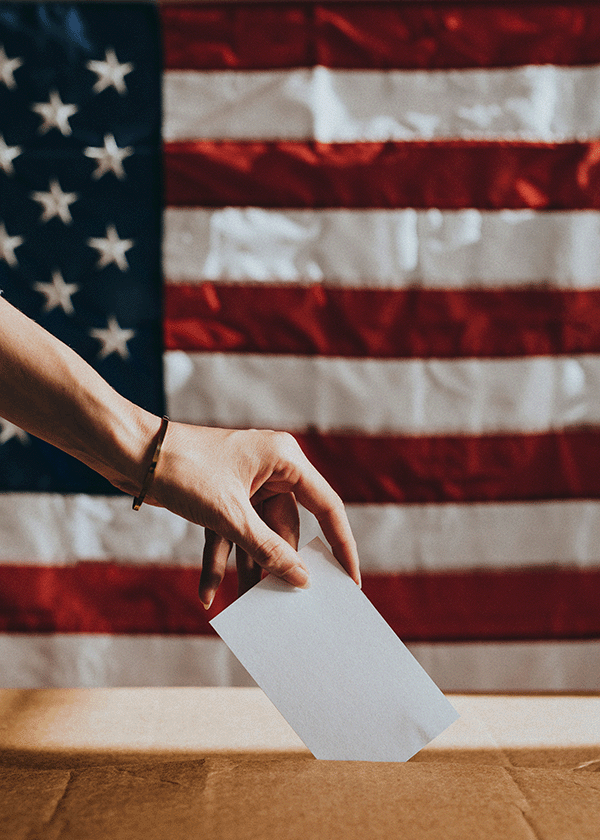
The Sandra Day O’Connor Institute has expanded its national presence with a new satellite office in Washington, D.C., and the launch of the O’Connor Institute–ASU Law Fellowship Program. Together, these initiatives strengthen the Institute’s mission to advance civic education, consensus building, and civic engagement across the country.
Meet Our Inaugural O’Connor Institute-ASU Law Fellow
Introducing Dallin Flake
Our first Fellow, Dallin Flake, was selected following a rigorous application and interview process by the O'Connor Institute in collaboration with the ASU Law School. We are pleased to welcome Dallin, a third-year law student, bringing his passion for civil dialogue and the mission of the Institute. He received a Bachelor of Arts in political science from Brigham Young University before applying to attend the ASU Sandra Day O'Connor College of Law. Since beginning law school, Dallin has worked in natural resources, environmental, and immigration law. Dallin has had a lifelong interest in civics and is committed to the need for nonpartisan cooperation and a civically educated public.

“I am thrilled to be part of the O’Connor Institute-ASU Law Fellowship in Washington D.C.,” said Dallin Flake. “This opportunity allows me to engage with civic leaders, explore critical issues facing our country, and contribute to the Institute’s mission of empowering citizens through education and civil discourse.”
As part of his law school studies, Dallin is currently serving an ASU externship in Washington, D.C., for the not-for-profit Salt River Project, a public power and water utility, in its federal affairs division, while finishing his final year of law school.
Applications for our second-semester O'Connor Institute Washington, D.C. Fellowship Program will open soon. For more information, contact Liam Julian, Institute Chief of Programs and Public Policy, ljulian@oconnorinstitute.org.
Reflections from Our Fellow on Life in Washington, D.C.
Our inaugural Fellow is sharing firsthand insights from their work in the nation’s capital, providing a behind-the-scenes look at how the Sandra Day O’Connor Institute advances civic learning and engagement on a national scale.
"My experience as a Sandra Day O’Connor Institute Fellow has enriched my time in Washington, D.C. by giving me a meaningful lens through which to engage with civic and policy conversations in law school and beyond. I’ve enjoyed connecting the Institute’s mission to promote civil discourse and civic education with discussions among classmates, professors, and professionals working in the legal and policy space. It has made my interactions far more intentional and fulfilling, and has encouraged me to think critically about how young leaders can foster non-partisan dialogue.
This semester, I look forward to deepening that engagement by participating in Institute programming, collaborating with other civic leaders and organizations, and exploring opportunities to expand civic-focused conversations on campus and in the D.C. community."

Civics Policy Updates
Our O'Connor Institute Fellow shares insights on current news related to civics policy from Washington, D.C.
Latest O'Connor Institute Policy Brief Earns National Attention
News outlets across the country — including the Miami Herald, Dallas Morning News, EducationWeek, and the Chicago Sun-Times — covered the brief. Their reporting was complemented by interviews and commentary from our Chief of Programs & Public Policy, Liam Julian.
The September 2025 Sandra Day O’Connor Institute Policy Brief, “Why Are Teachers Uncomfortable Teaching Civics?”, reveals that most K–12 civics teachers lack both the training and institutional support needed to teach effectively. Only 20% of social studies teachers feel prepared to teach civics, a shortfall the report attributes to inconsistent preparation programs and inadequate professional development. Nearly 80% of teachers surveyed said they self-censor due to fear of controversy, and fewer than 15% reported receiving clear district guidance on what is permissible to teach. The brief also finds that civic education suffers from a lack of shared purpose, leaving teachers unsure of the true purpose of civics. The Institute recommends strengthening civics training, clarifying state standards, protecting teachers who engage complex topics, and fostering classroom cultures of inquiry and respectful discourse.
Sources:
O'Connor Institute
U.S. Citizenship and Immigration Service is updating the Naturalization Civics Test
The U.S. civics test for naturalization is changing, taking effect for applications filed on or after October 20, 2025. The new test uses a larger bank of 128 questions, an increase of 20, and requires applicants to answer 12 questions, up from 6.
Sources:
Federal Register
CBS News
U.S. Citizenship and Immigration Services

U.S. Department of Education Creates the Civics Education Coalition
On September 17, 2025, the U.S. Department of Education joined with the America First Policy Institute, Turning Point USA, Hillsdale College, and more than 40 other national and state organizations to launch the America 250 Civics Education Coalition. The coalition is framed as an effort to “renew patriotism,” bolster civic knowledge, and promote a shared understanding of America’s founding principles through school-based programming, community engagement, and teacher support. According to reports, the Department’s role will mainly be one of coordination and oversight rather than direct funding for the coalition’s activities. The coalition plans to host speaker series, student competitions, and teacher summits, while providing schools with curricular toolkits. Supporters argue that the initiative will help address perceived gaps in civic knowledge and encourage citizens to engage responsibly. Critics warn, however, that without safeguards, the effort could lean toward a narrow narrative of U.S. history that underrepresents harder or contested themes.
Sources:
U.S. Department of Education
NPR
